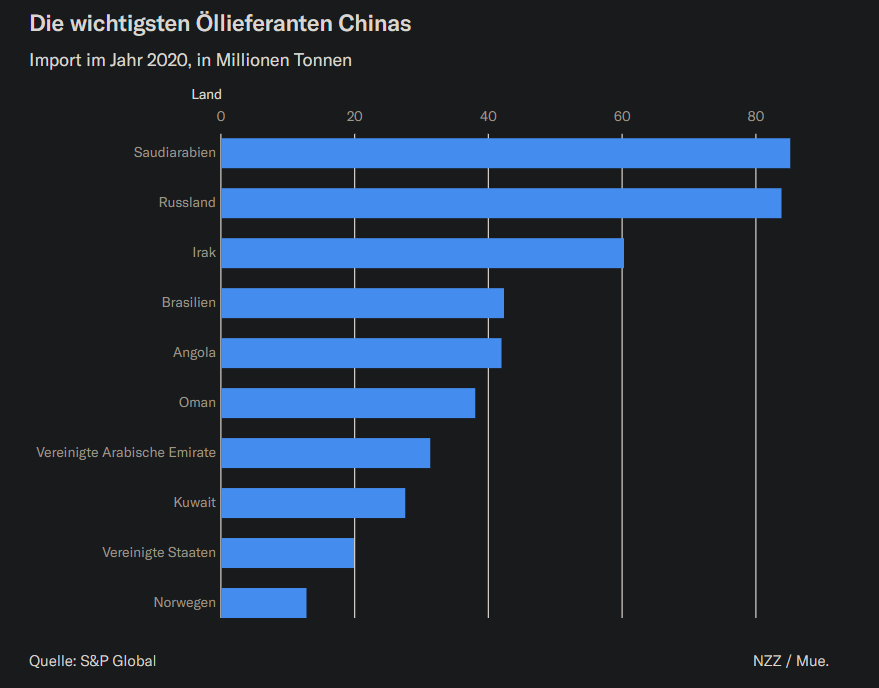
#Thread about #relationship between #China and #Russia:
Ever since the EU had imposed far-reaching sanctions on Russia in the wake of the annexation of Crimea in 2014, Moscow was increasingly looking to the east.
nzz.ch/pro-global/asi…
Ever since the EU had imposed far-reaching sanctions on Russia in the wake of the annexation of Crimea in 2014, Moscow was increasingly looking to the east.
nzz.ch/pro-global/asi…
In recent years, for example, China and Russia have repeatedly held joint maneuvers. There has even been talk of a military alliance.
The bilateral trade volume is growing steadily, also fueled by the EU sanctions, and reached a record value of 110 billion dollars in 2019. In 2013, Russia's trade with the EU was five times greater than that with China.
Today it is only twice as big. The two economies complement each other: Russia supplies raw materials such as oil and gas; China offers technology, machinery and consumer goods.
But the two countries are unequal partners. China's economy, with a volume of around $ 15 trillion, is roughly ten times the size of Russia's. This leads to one-sided dependencies on the Russian side and thus also to mistrust.
The Russian oil company Rosneft, for example, is heavily indebted to Chinese state banks. Last year, at Beijing's behest, he had to stop drilling off the Vietnamese coast in the South China Sea. China raises territorial claims in this area.
The Russian-Chinese relationship is less a love marriage than an alliance of convenience. For example, Russia needs technology to set up the 5G network in the country.
The Chinese companies Huawei and ZTE can supply these and even want to produce in Russia. Like other countries, Russia has security concerns and is therefore trying to involve competitors such as Ericsson and Nokia in the development of the network.
The situation in the Sino-Russian border area in Siberia is also difficult. Since 1990 a border crossing has connected the cities of Heihe on the Chinese and Blagoweschensk on the Russian side of the Amur.
Day tourists from Russia come to Heihe as part of a small border traffic and buy clothes and electronic goods on the Chinese markets. A bridge has been connecting the two cities for several years.
Precious woods, gold, ginseng and jade from Russia come to China via smuggling routes. Most of the trade is controlled by Chinese businessmen. Chinese men and women who come to work in Russia repeatedly cause displeasure among Russians in impoverished Siberia.
• • •
Missing some Tweet in this thread? You can try to
force a refresh



